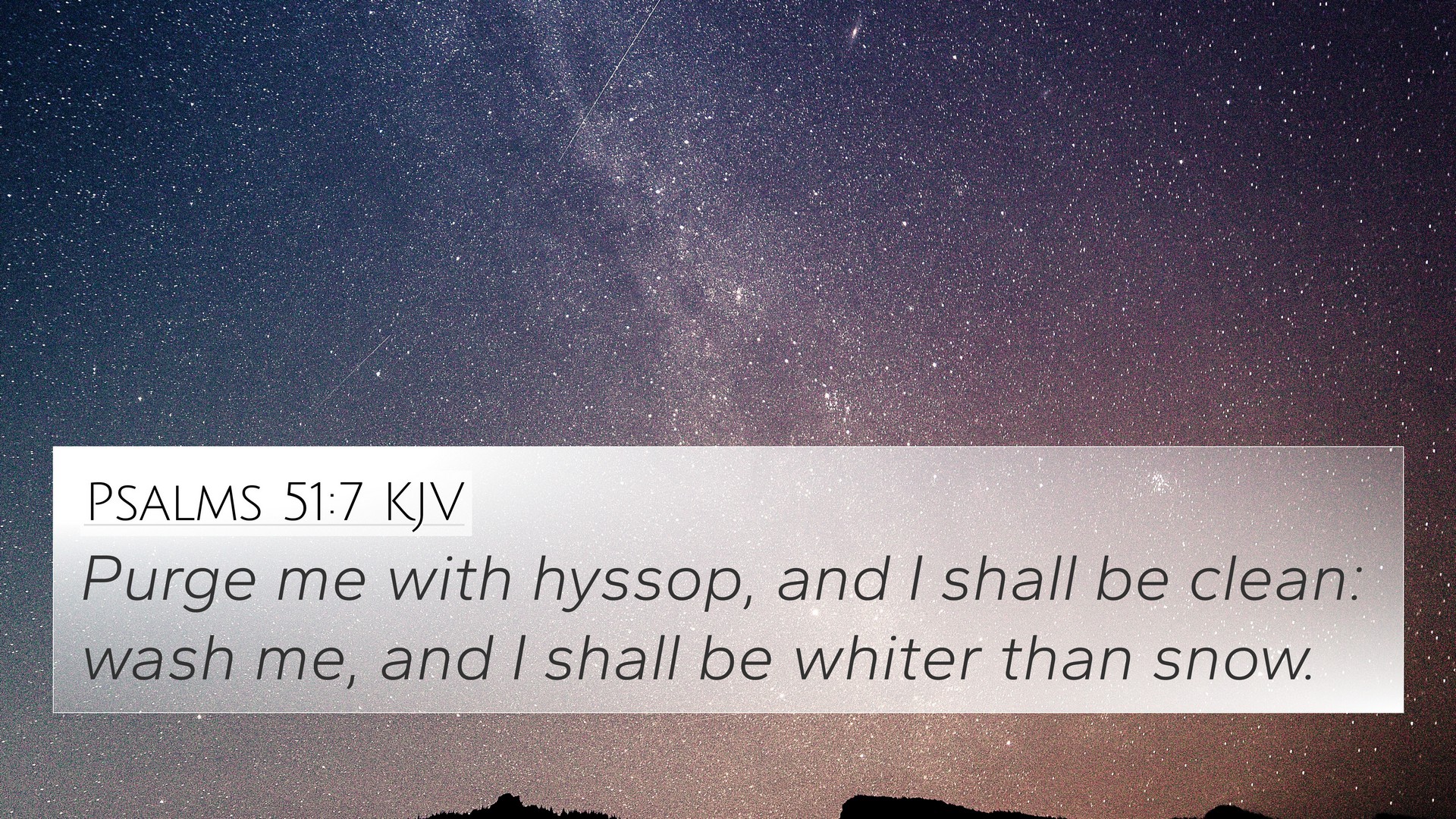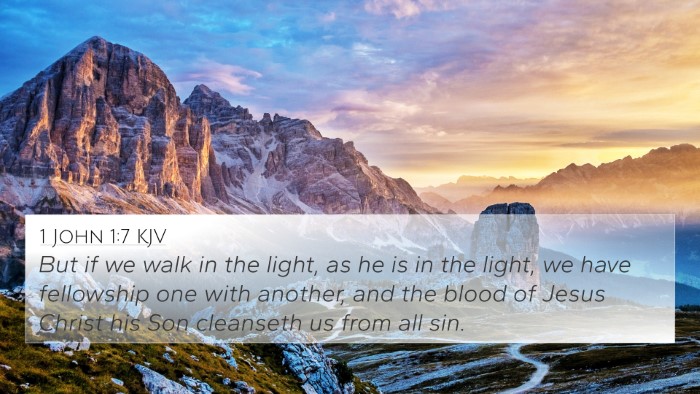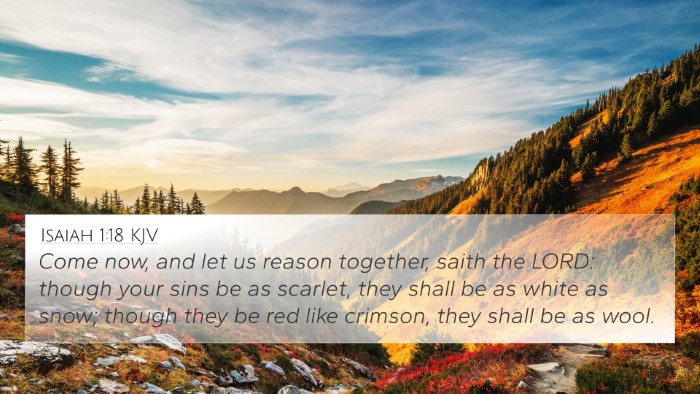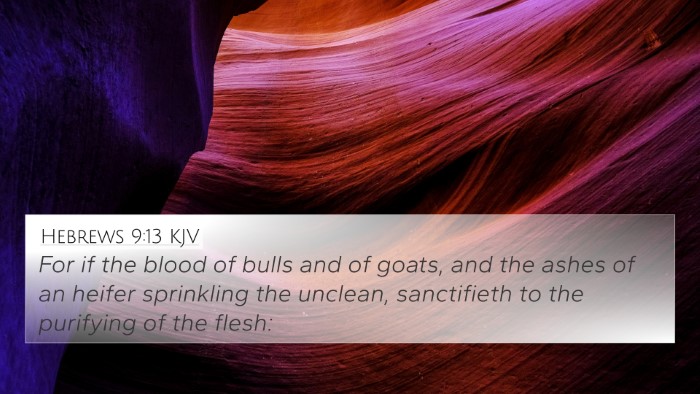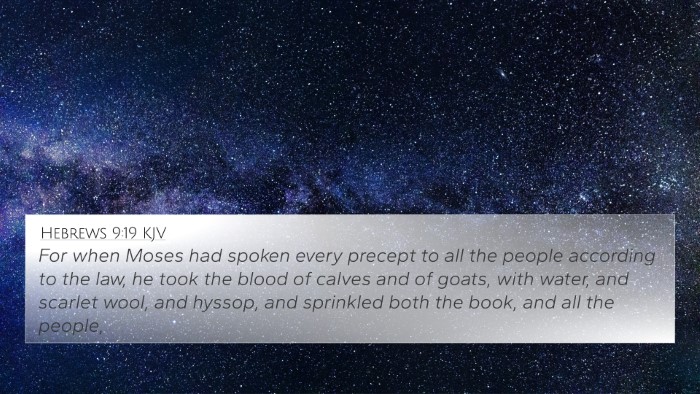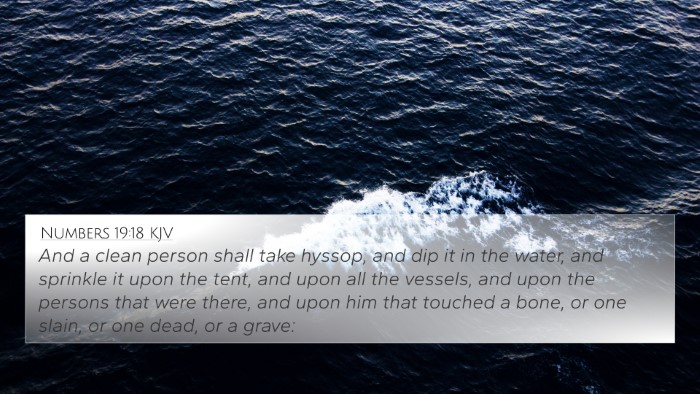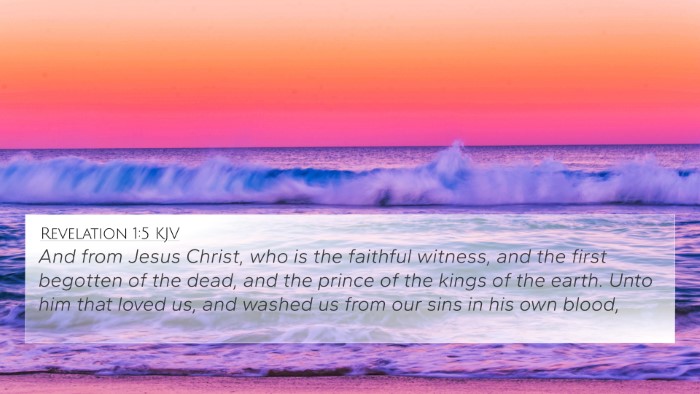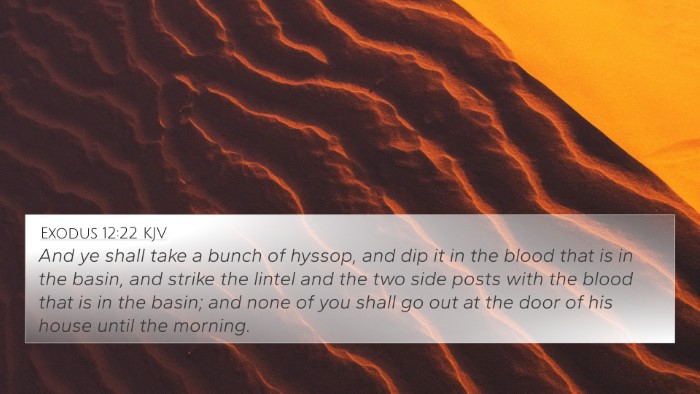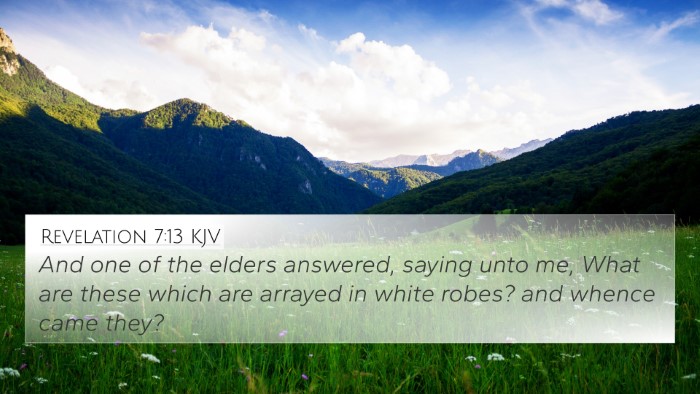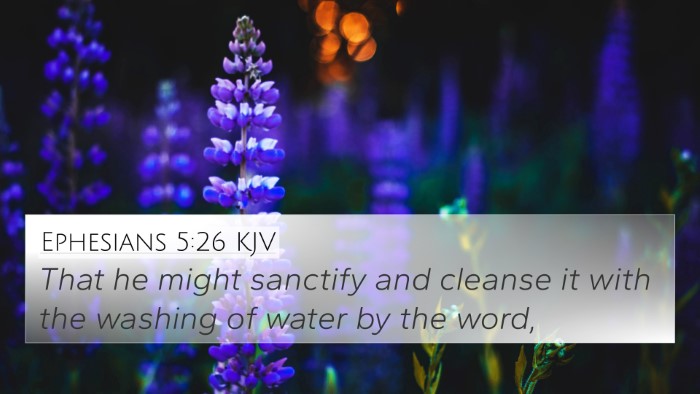Psalms 51:7 Interpretation and Meaning
Psalms 51:7 states, "Purge me with hyssop, and I shall be clean: wash me, and I shall be whiter than snow." This verse reflects King David's profound sense of guilt and his earnest plea for divine cleansing after his sin with Bathsheba. The psalm serves as a penitential psalm, capturing the themes of repentance, restoration, and the desire for purification.
Contextual Understanding
The context of this verse lies in David's recognition of his sinfulness and the weight of his transgressions. After being confronted by the prophet Nathan, David's heartache leads him to cry out for mercy and cleansing. The specific terms used in this verse—"hyssop" and "whiter than snow"—carry rich symbolic meaning.
Symbolism in Psalms 51:7
-
Hyssop: This plant was used in ancient Israel for ritual purification. It symbolizes cleansing from sin and is closely linked to the sacrificial system, where it was used to apply the blood of sacrifices (as seen in Exodus 12:22).
-
Whiter than snow: This imagery denotes complete purification. Snow, being inherently pure and clean, indicates that God's forgiveness can wash away even the most grievous sins.
Thematic Connections
In examining Psalms 51:7 through the lens of other scriptures, we can identify compelling thematic connections that enhance our understanding of divine forgiveness and purification. Below are some key cross-references:
- Isaiah 1:18: "Though your sins be as scarlet, they shall be as white as snow..." - Similar themes of sin and divine cleansing.
- Hebrews 9:14: "...the blood of Christ, who through the eternal Spirit offered himself without spot to God, purge your conscience..." - Emphasizes the purification through Christ's sacrifice.
- 1 John 1:9: "If we confess our sins, he is faithful and just to forgive us our sins, and to cleanse us from all unrighteousness." - The assurance of cleansing through confession.
- Psalm 19:12-13: "Who can understand his errors? cleanse thou me from secret faults." - Awareness of sin and need for cleansing.
- Jeremiah 33:8: "And I will cleanse them from all their iniquity, whereby they have sinned against me..." - God's promise to cleanse His people.
- Ezekiel 36:25: "Then will I sprinkle clean water upon you, and ye shall be clean..." - A direct reference to purification similar to that of hyssop.
- Revelation 1:5: "...Unto him that loved us, and washed us from our sins in his own blood..." - Conveys the cleansing power of Christ's sacrifice.
Comparative Analysis
When comparing Psalms 51:7 to other verses, we find a continuous thread throughout the Bible that emphasizes the themes of confession, repentance, and divine forgiveness. The process of being purged or cleansed from sins transcends the psalm itself and permeates both the Old and New Testaments. By using tools for Bible cross-referencing, one can aid their understanding of these interconnected themes.
Tools for Cross-Referencing
To deepen one's study on this verse, there are several tools and resources available for effective cross-referencing:
- Bible Concordance: A comprehensive tool that lists scripture references according to keywords for easier thematic study.
- Bible Cross-Reference Guide: Specific guides help in finding related scriptures quickly.
- Bible Chain References: Utilize references that lead from one verse to another on similar themes.
Practical Applications
Understanding Psalms 51:7 can inspire believers today to seek repentance and the cleansing power of God in their lives. The Bible encourages regular self-examination and acknowledgment of one's sins, followed by the assurance of God's forgiveness.
Suggestions for Bible Study
- Reflect on Personal Sin: Use Psalms 51:7 as a template for personal confession and prayer.
- Group Studies: Engage in discussions around forgiveness as highlighted across different scriptures.
- Sermon Preparation: For pastors and teachers, consider how this verse can illustrate the themes of redemption and grace.
Conclusion
Psalms 51:7 serves as a powerful reminder of the need for spiritual cleansing and the hope that comes from God's forgiveness. By exploring its connections with other scriptures, believers can find comfort and assurance in the consistent message of God's grace throughout the Bible.
